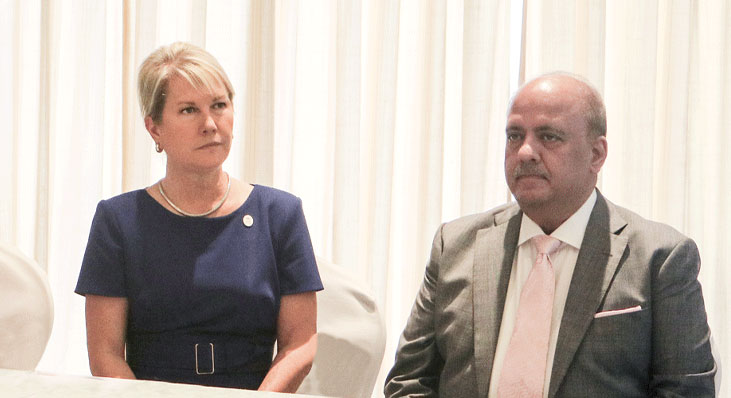If you want responsible Rotarians, give them responsibility by engaging them in regular meetings, events and service projects so that “they feel the belongingness and don’t leave the organisation,” said RI President Jennifer Jones. Addressing the 30 district trainers-elect at Visakha Vista Rotary zone institute, she said, “the role of DTs is crucial for clubs and districts to effectively reach out to communities. As RI is expanding its horizons with its new DEI (Diversity, Equity, Inclusion) policy, it is vital for DTs to update themselves and adopt new training modules.”

She praised PRIP Shekhar Mehta for his bold Each One Bring One initiative “which turned the momentum towards a positive growth.” With the new thrust on diversity and inclusion, “we are breaking down barriers to membership growth.” Rotary will emerge stronger with a kaleidoscope of visions that embrace all religions, nationalities and diverse perspectives, Jones said. DTs should train confident leaders in Rotary; and “Rotaractors too must benefit in cross-mentorship as they think and do things differently and can carry our legacy forward.”
They also must be compatible trainers to their governors, said RID Mahesh Kotbagi. “Some PDGs feel that there is nothing to be learnt as DTs, which is wrong. For, you get trained to update your skills and capabilities.” Adopt the learning tools available on rotary.org and get conversant with Rotary’s Code of Policies, he told the participants. “You need to support your DGs. Better still, take up active branding of your district as it will lift its public image.”
PRIP Mehta advised the DTs to shape the future of their RI districts through a process of standardisation and scaling up of their training programmes. He cited RIHF and RILM which were formed to address Rotary’s focus areas of water and sanitation, and literacy.
PDG Jawahar Vadlamani asked the DTs not to dominate their governors, but support them; “your role is like an elder in the family.” All the resource tools are available at the Rotary Learning Centre link on rotary.org. “Structure your training programmes and plan your calendar well in advance,” he said.
There are seven training modules including speed bee, table topics, plenary session, brainstorming and case studies which the trainers can adopt suitably for holding PETS, AETS, DTAs and other programmes, said PDG George Sundararaj. Two panel discussions on ‘Good and bad practices’ and case studies were chaired by PDGs Kishore Kumar and Ranjan Dhingra that dwelt on major responsibilities of DTs and how they can meet emerging challenges. PRID Kamal Sanghvi called for training the trainers by “inviting the right, qualified speakers at the workshops and seminars.”





